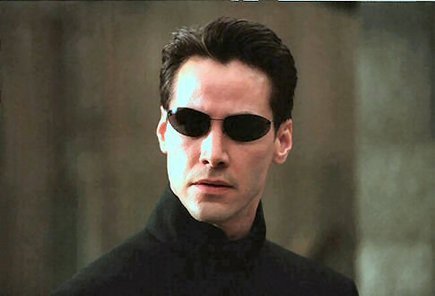As a rule of thumb, Westerners are more serious about their names than we Chinese are. They insist on pronouncing your name correctly and, conversely, you pronouncing theirs correctly. Chinese tend to be relaxed about such things and not be offended if others, Chinese or Westerners, get our names wrong. Some deliberately choose names so esoteric that even their Chinese-language teachers feel daunted. Well, I should say it’s some parents who harbor such a penchant.
One illustration about this laissez-faire attitude is the massive mispronunciation of celebrity names. Mind you, these are people we idolize by plastering their images on our dorm walls or computer screens, yet we happily call them by something the stars themselves may not recognize.

The biggest case is Keanu Reeves. I admit it’s an unusual English name. It is Hawaiian in origin, meaning “cool breeze”, and should be pronounced the Hawaiian way. So, Keanu is [ki’a:nu] (基亚努),not [‘ki:nu] (基努). When the star of Speed and the Matrix trilogy was in China making a kung fu flick, his self-introduction to local guests often elicited responses as if they had never heard of him.
Another victim to Chinese mispronunciation is Ewan McGregor. Most Chinese would say [i’wan] (伊万) instead of [‘yiu:wən] (尤文). It is Scottish in origin, and the Irish equivalent is Owen, among other spellings. But the Chinese pronunciation and translation suggest that it is a Russian name.
Elijah, as in Elijah Wood is much more complicated. It is a Hebrew name with variations in a dozen different languages. A Hebrew prophet of the 9th century BC is called Elijah, and the name was popular in medieval tales. It came into general use during the Middle Ages, but died out by the 16th century. In the aftermath of the Protestant Reformation, the name was revived by Puritans, who settled on the spelling Elijah in the English world. The pronunciation [I’liya] as reflected in the Chinese translation 伊利亚 is probably used in several countries, but in the US, where the actor Elijah Wood was born and grew up, it is pronounced [i’laiʒe] (伊莱泽).
Now, if you know Spanish, you’ll instantly recognize that Joaquin, as in Joaquin Phoenix is [hwa’kin] (华金), but we Chinese mistakenly adopt the anglicized sound [dʒɔkwun] (乔昆 or 杰昆).
Names, like other words, have roots. When ignorant of the roots, one may simply look at the spelling and read it using the general rules, or be misled by the Chinese translations that could be based on another version of the same name.
Because we tend to follow the English pronunciation to the letter, we often exaggerate the sounds that are downplayed in English. For example, Kidman in Nicole Kidman is turned into Kiderman, and Whitney in Whitney Houston into Whiterney. Well, the Chinese dictionary may translate them with the [d] and [t] pronounced, but no native speaker would be caught dead doing so.
(作者:Raymond Zhou,编辑 Helen)
